Facing a malpractice claim or allegations of misconduct can feel overwhelming—it’s not just your career at stake but the trust and reputation you’ve worked so hard to build. As attorneys, we’re held to high standards; even minor missteps can lead to significant consequences. Understanding how attorney misconduct cases arise and how to handle them is critical to protecting yourself and your practice.
The McGavock Reed Law Firm is here to help attorneys in Washington, DC, navigate these difficult situations. If you’re dealing with malpractice claims or ethical challenges, The McGavock Reed Law Firm will work with you to find the best path forward.
How Attorney Misconduct Leads to Malpractice Claims
Attorney misconduct occurs when actions violate ethical standards or professional duties. In Washington, DC, the DC Rules of Professional Conduct, based on the ABA Model Rules, set the ethical framework for attorneys.
Here are a few key rules to keep in mind:
- Rule 1.1 – Competence: Requires attorneys to have the legal knowledge, skills, and preparation necessary to handle a case.
- Rule 1.3 – Diligence: Mandates that attorneys act with urgency and care on behalf of their clients.
- Rule 1.4 – Communication: Stresses the importance of keeping clients informed and responding promptly to inquiries.
- Rule 8.4 – Misconduct: Prohibits dishonesty, fraud, or conduct that harms the justice system.
Violating these rules doesn’t just lead to disciplinary action—it can also trigger malpractice suits, which can be devastating for your practice and career.
Common Misconduct That Lead to Malpractice Claims
1. Missed Deadlines
We all know how busy legal work gets, but missing a deadline—like a statute of limitations—can lead to malpractice claims. Clients don’t just see a missed deadline; they see lost opportunities.
Example: Failing to file a personal injury claim after the statute of limitation has run, leaving the client with no recourse.
2. Communication Breakdowns
Clients want to be kept in the loop, and when communication falls through, it can lead to frustration and claims of negligence.
Example: Not informing a client about a critical settlement offer, leaving them feeling blindsided or betrayed.
3. Breach of Fiduciary Duty
Attorneys are fiduciaries for their clients, meaning they must act in the client’s best interests. Allegations of mishandling client funds or failing to disclose conflicts of interest can lead to both ethical complaints and malpractice suits.
Example: A Rule 1.15 violation where an attorney fails to properly safeguard client funds in a trust account.
4. Conflicts of Interest
Representing clients with conflicting interests, even unintentionally, can put your practice in jeopardy if it compromises your ability to advocate fully for a client.
Example: Representing opposing parties in a transaction without fully disclosing the risks.
5. Dishonesty and Fraud
Rule 8.4 prohibits dishonesty or fraudulent behavior. Misrepresentation or concealing key facts can lead to malpractice claims and ethical complaints.
Example: Misstating the status of a case to a client to cover up an error.
Steps to Take When Facing Allegations
- Review the Allegations Carefully
Begin by thoroughly understanding the claims brought against you and gathering relevant documentation. Understanding the specifics of the allegations is critical for forming an effective defense.
- Consult an Ethics Attorney in DC
Engage an experienced misconduct attorney or ethics attorney in DC as soon as possible. A knowledgeable ethics attorney in DC can help you evaluate the claim, determine the best defense, and guide you through the process.
- Maintain Confidentiality
Avoid discussing the matter with colleagues, clients, or others outside your legal counsel. Confidentiality is essential to protecting your position and building a solid defense.
- Cooperate with Investigations
If the claim involves a bar complaint, or disciplinary investigation, work with your attorney to provide the required information while safeguarding your interests.
- Address Underlying Issues
If the allegations reveal systemic issues in your practice such as communication or trust account management, then take the proactive steps to resolve them.
How The McGavock Reed Law Firm Can Help You
The McGavock Reed Law Firm understands how stressful it is to face a malpractice claim. We have extensive experience representing attorneys facing allegations of misconduct and malpractice claims in Washington, DC. The firm’s services include:
- Building a Strong Defense
Carefully review the details of your case and develop a strategy tailored to your unique situation.
- Representation in Bar Complaints
If you’re facing disciplinary action, McGavock Reed will guide you through the process and advocate for you to minimize penalties.
- Proactive Ethical Guidance
We do more than just help when there’s a problem – the firm also advises attorneys on DC attorney ethics to prevent issues from arising in the first place.
- Mitigating Future Risks
Identify areas in your practice that need improvement, such as trust accounting or client communication, so you can avoid similar claims in the future.
Protecting Your Practice Before Problems Arise
Even if you’re not facing a claim, taking proactive steps to protect your practice can save you time, stress, and money down the road.
- Stay Informed: Regularly review the DC Rules of Professional Conduct and keep up with changes.
- Keep Communication Open: Clients value transparency and responsiveness—these simple steps can go a long way in avoiding complaints.
- Use Technology: Tools for trust accounting, case management, and deadline tracking can reduce errors and keep your practice running smoothly.
- Ask for Advice: If you’re unsure about a decision, consult a misconduct attorney before moving forward.
How The McGavock Reed Law Firm Can Help You
The McGavock Reed Law Firm, knows how much effort goes into building a legal career, and is here to help you protect it. Whether you’re dealing with a malpractice claim, a bar complaint, or just need guidance on DC attorney ethics, you don’t have to face it alone. Here’s why Ethics and Professional Responsibility Attorney in Washington D.C. McGavock “Mac” Reed, is equipped to provide you an outstanding defense:
- Specialized Focus: The McGavock Reed Law Firm concentrates exclusively on ethics and professional responsibility cases.
- Local Expertise: His extensive experience with the DC Bar Counsel makes him an excellent choice for any malpractice suit.
- Client-Centered Approach: The firm takes a personalized approach, addressing the specific concerns of each attorney and ensuring their needs and goals are met.
For more information, visit the homepage.
Call or email today at ( 703) 206-6926/info@macreedlaw.com to schedule a confidential consultation. Let’s work together to protect your reputation and move forward with confidence.


